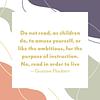Take a photo of a barcode or cover
I liked this novel the least in the trilogy, even though Jane Gardam is incapable of writing anything even approaching bad. But Last Friends is - mostly - told from Veneering's point of view and except for a short scene in which he catches sight of Betty before either he has his affair with her or she marries - he doesn't mention her at all, which I found odd. And it's for that reason - that Veneering shed no more light on the woman he once loved passionately even if only for a short time, although he remained - I think - obsessed with her - that I liked this novel the least in the trilogy. I even wondered whether Gardam's editor had suggested she write this third book and Gardam found her heart was not entirely in the writing ... but perhaps there's something, many things even, in Last Friends that I've completely missed?
I absolutely loved "Old Filth", the first book in what has become a trilogy written by Jane Gardam. This book not so much. This is the last of the three books and I am hoping that the middle one (The Man in the Wooden Hat) will make some of this one, "Last Friends" clearer.
Jane Gardam is a wonderful author and I love her style of writing that evokes laughter out loud. "Last Friends" does explain the relationships of the major characters, with an element of mystery. In the middle of the book, Gardam introduces a new character . . . a young boy and his life many years prior to the current day of the novel. For me it was a major interruption in the flow of the book. While it was a clever method of doing so, I would have appreciated another method.
However, all in all, a great story, artfully told.
Jane Gardam is a wonderful author and I love her style of writing that evokes laughter out loud. "Last Friends" does explain the relationships of the major characters, with an element of mystery. In the middle of the book, Gardam introduces a new character . . . a young boy and his life many years prior to the current day of the novel. For me it was a major interruption in the flow of the book. While it was a clever method of doing so, I would have appreciated another method.
However, all in all, a great story, artfully told.
OMG! I SQUEED when I saw that this book was coming out. I adore Jane Gardam and the Old Filth novels have been so stellar. I CANNOT WAIT!
***************
Okay, I finally finished and was disappointed, I'm afraid. OLD FILTH and THE MAN IN THE WOODEN HAT are both so stellar, complex, nuanced and surprising, that this felt like a novella rehash of the least interesting characters in the Raj Orphan set.
I adore Gardam's writing style and understand why she felt the need to return to this setting and character group, but I finished sort of wishing she hadn't. This is a nonrequired third in a trilogy where the first two overshadow this slight novel by a long way.
***************
Okay, I finally finished and was disappointed, I'm afraid. OLD FILTH and THE MAN IN THE WOODEN HAT are both so stellar, complex, nuanced and surprising, that this felt like a novella rehash of the least interesting characters in the Raj Orphan set.
I adore Gardam's writing style and understand why she felt the need to return to this setting and character group, but I finished sort of wishing she hadn't. This is a nonrequired third in a trilogy where the first two overshadow this slight novel by a long way.
dark
funny
reflective
sad
slow-paced
Strong character development:
Complicated
Loveable characters:
Complicated
Diverse cast of characters:
No
Flaws of characters a main focus:
Yes
Final book in the magnificent Old Filth trilogy.
Funny, sprightly, splendid writing and delightful characters in this third book in the [b:Old Filth|37060|Old Filth|Jane Gardam|http://d.gr-assets.com/books/1327882796s/37060.jpg|36965]trilogy. We learn of Terence Veneering's beginnings and more about some of the now-aged peripheral characters as they begin the last leg of their journey.
Good quote from the rejected Fiscal-Smith: "Sometimes, he thought, one should take a long, hard look at old friends. Like old clothes in a cupboard, there comes the moment to examine for moth. Perhaps throw them out and forget them."
Good quote from the rejected Fiscal-Smith: "Sometimes, he thought, one should take a long, hard look at old friends. Like old clothes in a cupboard, there comes the moment to examine for moth. Perhaps throw them out and forget them."
Very disappointing. I only finished this because I had enjoyed the first two in the series and wanted to have read the full set. There was very little of Edward and Betty and lots of characters we had barely heard of/didn't care about, like Dulcie and Fiscal-Smith. The story of Veneering's early boyhood went on far too long and then the mystery of his marriage to Elsie was not touched on at all. Isobel remained shadowy and inconsistent. I think I liked sulky Susan the most...
Through the reminiscences of a heretofore minor character, this book provided missing pieces of the backgrounds of Old Filth, Betty and Veneering. And I liked it but not as much as the prior two books. I love Gardam's prose but sometimes I wish she would slow down a bit so I could absorb all that's going on. There is still much more I'd like to know about Isobel, and the man in the wooden hat, and Veneering's parents, and Sir...it seems we've just scratched the surface of this world. I wish there were more books yet to come in the series.
I don't quite know what to make of this book. It's brilliant, as all Jane Gardam novels are; it's complex, perhaps overly so. In the end I thought it was too much work, alas.
This is another week where the reading time is snatched and time I can dedicate to reviews suffers.
I felt there was a bit of wit about the book, but it just didn't really grab me. The characters were okay, but I'm 99.9% sure this is the fault of coming in at the third act. I think a lack of connection comes from not being versed with the backstory of the last two books. I can still get into books when I start at the end of a series, etc, but here I couldn't.
I'll give it the benefit of the doubt on being heavily built on the two books before it. Would definitely consider starting from book one, since I have heard it's worth it.
tl;dr Double check things being in a series!
I felt there was a bit of wit about the book, but it just didn't really grab me. The characters were okay, but I'm 99.9% sure this is the fault of coming in at the third act. I think a lack of connection comes from not being versed with the backstory of the last two books. I can still get into books when I start at the end of a series, etc, but here I couldn't.
I'll give it the benefit of the doubt on being heavily built on the two books before it. Would definitely consider starting from book one, since I have heard it's worth it.
tl;dr Double check things being in a series!
A welcome addition to the story of "Old Filth" and his compatriots.
The most impressive thing with the subsequent volumes (this, The Man in the Wooden Hat and the title story in The People on Privilege Hill) is how Gardam takes characters that were minor, if not to the plot then certainly in terms of character development, and fleshes them out, providing their back stories and perspectives. Last Friends focuses on the opportunistic friendship of the last of the characters to remain alive - the third of the main lawyers, Fiscal-Smith, and Dulcie, the wife of the judge "Pastry Willy" who played such a significant role in Old Filth's wedding in Hong Kong.
But the real value for readers is the insight into the background of Old Filth's rival, in love and business, Terry Veneering. In particular, we learn that the Veneering name - which we assumed was borrowed by the author from Charles Dickens nouveau-riche social-climbing couple of that name from Our Mutual Friends - isn't his real name at all but an Anglization of his original Russian name bestowed on him by a mentor as a form of prediction of his fate.
The writing is, as ever in Gardam's books, beautiful.
The one criticism is the overly-Dickensian connections between some of the characters - in particular the rather stereotyped country village where many of the characters seem to end up largely by coincidence.
And the worry for the reader is where does the story go from here - when we're left with only two remaining "Last Friends" from such a rich tapestry of characters.
The most impressive thing with the subsequent volumes (this, The Man in the Wooden Hat and the title story in The People on Privilege Hill) is how Gardam takes characters that were minor, if not to the plot then certainly in terms of character development, and fleshes them out, providing their back stories and perspectives. Last Friends focuses on the opportunistic friendship of the last of the characters to remain alive - the third of the main lawyers, Fiscal-Smith, and Dulcie, the wife of the judge "Pastry Willy" who played such a significant role in Old Filth's wedding in Hong Kong.
But the real value for readers is the insight into the background of Old Filth's rival, in love and business, Terry Veneering. In particular, we learn that the Veneering name - which we assumed was borrowed by the author from Charles Dickens nouveau-riche social-climbing couple of that name from Our Mutual Friends - isn't his real name at all but an Anglization of his original Russian name bestowed on him by a mentor as a form of prediction of his fate.
The writing is, as ever in Gardam's books, beautiful.
The one criticism is the overly-Dickensian connections between some of the characters - in particular the rather stereotyped country village where many of the characters seem to end up largely by coincidence.
And the worry for the reader is where does the story go from here - when we're left with only two remaining "Last Friends" from such a rich tapestry of characters.




